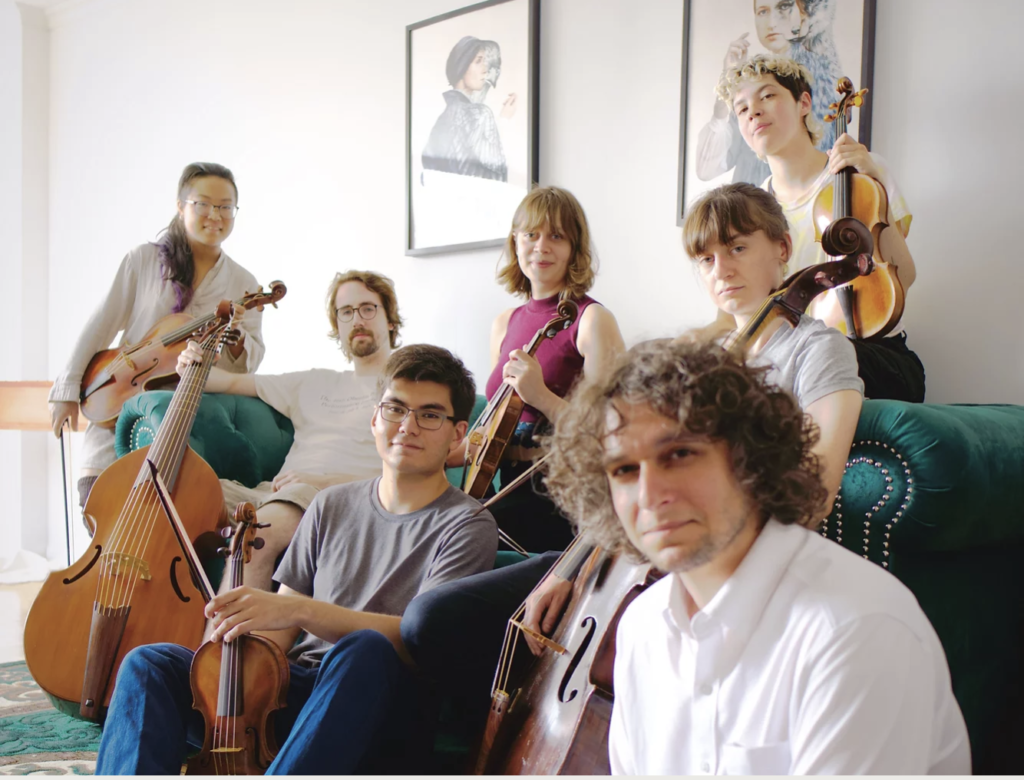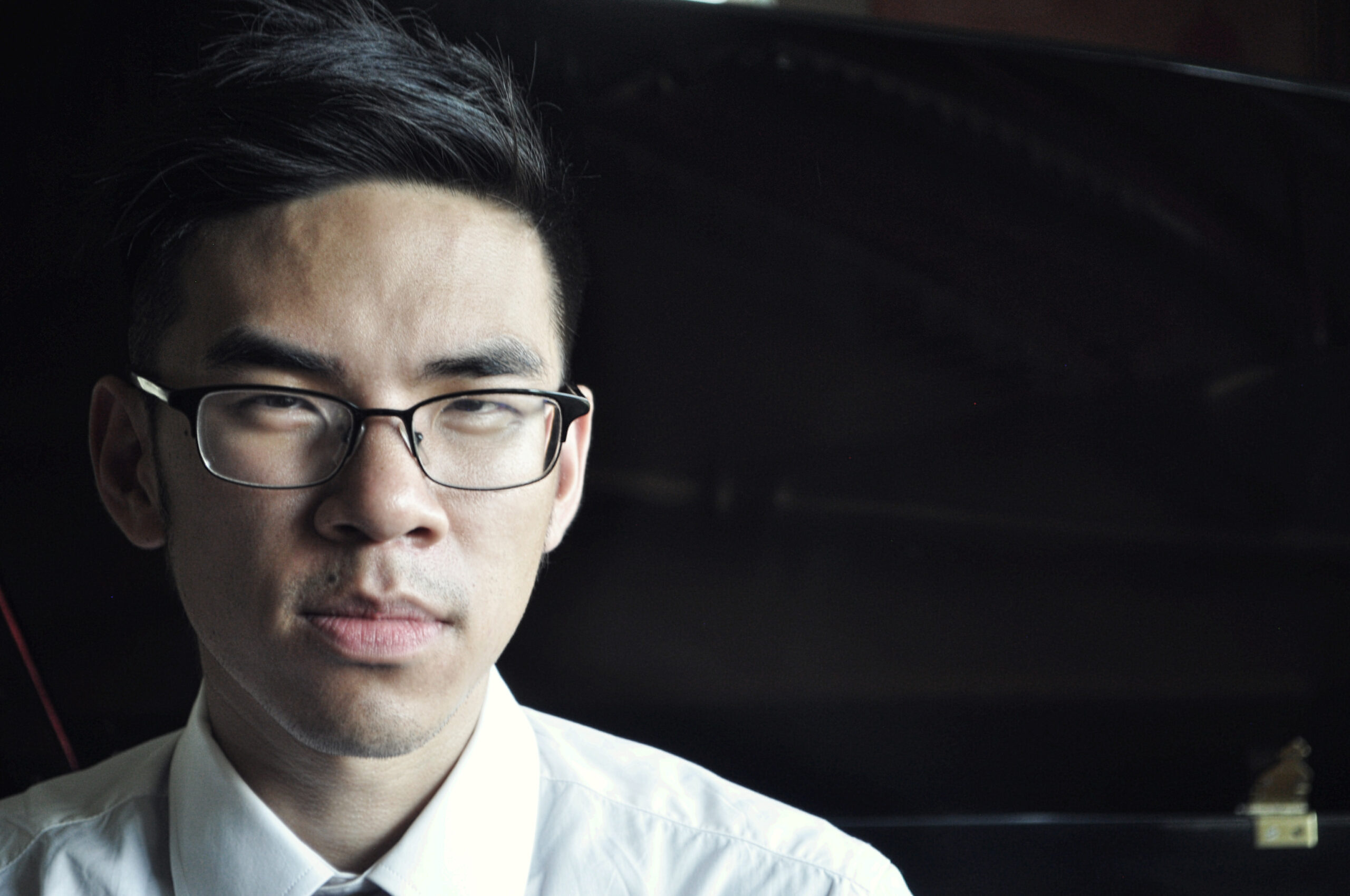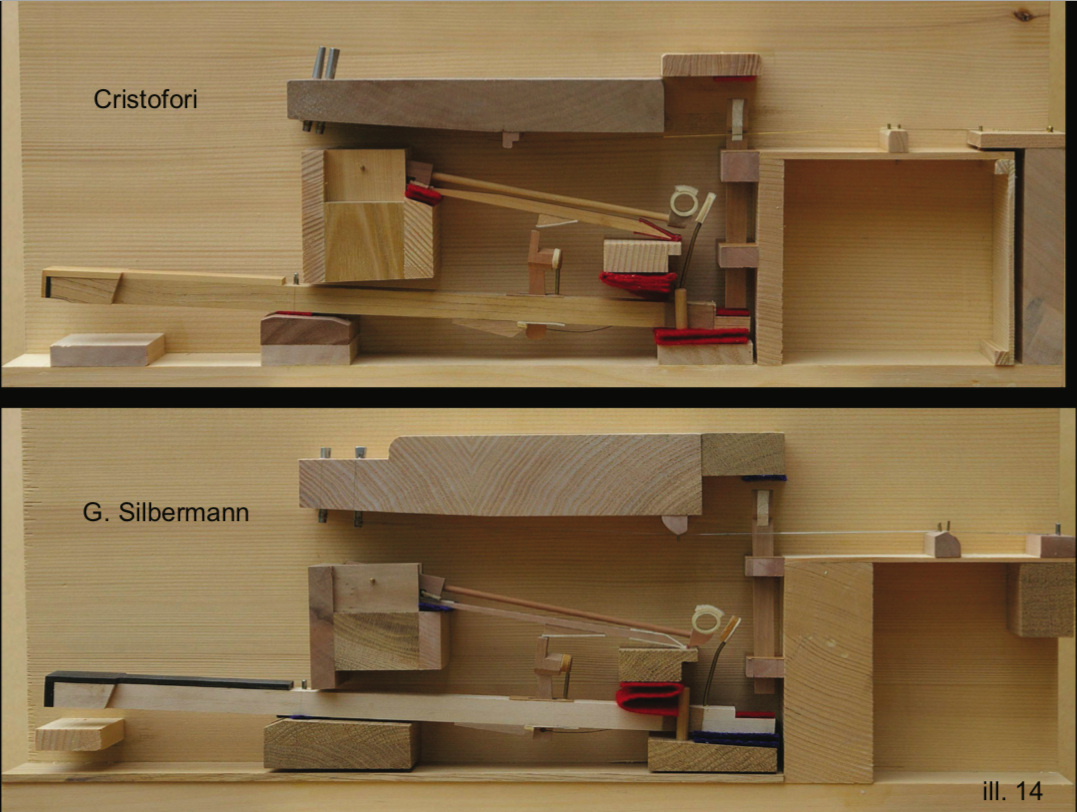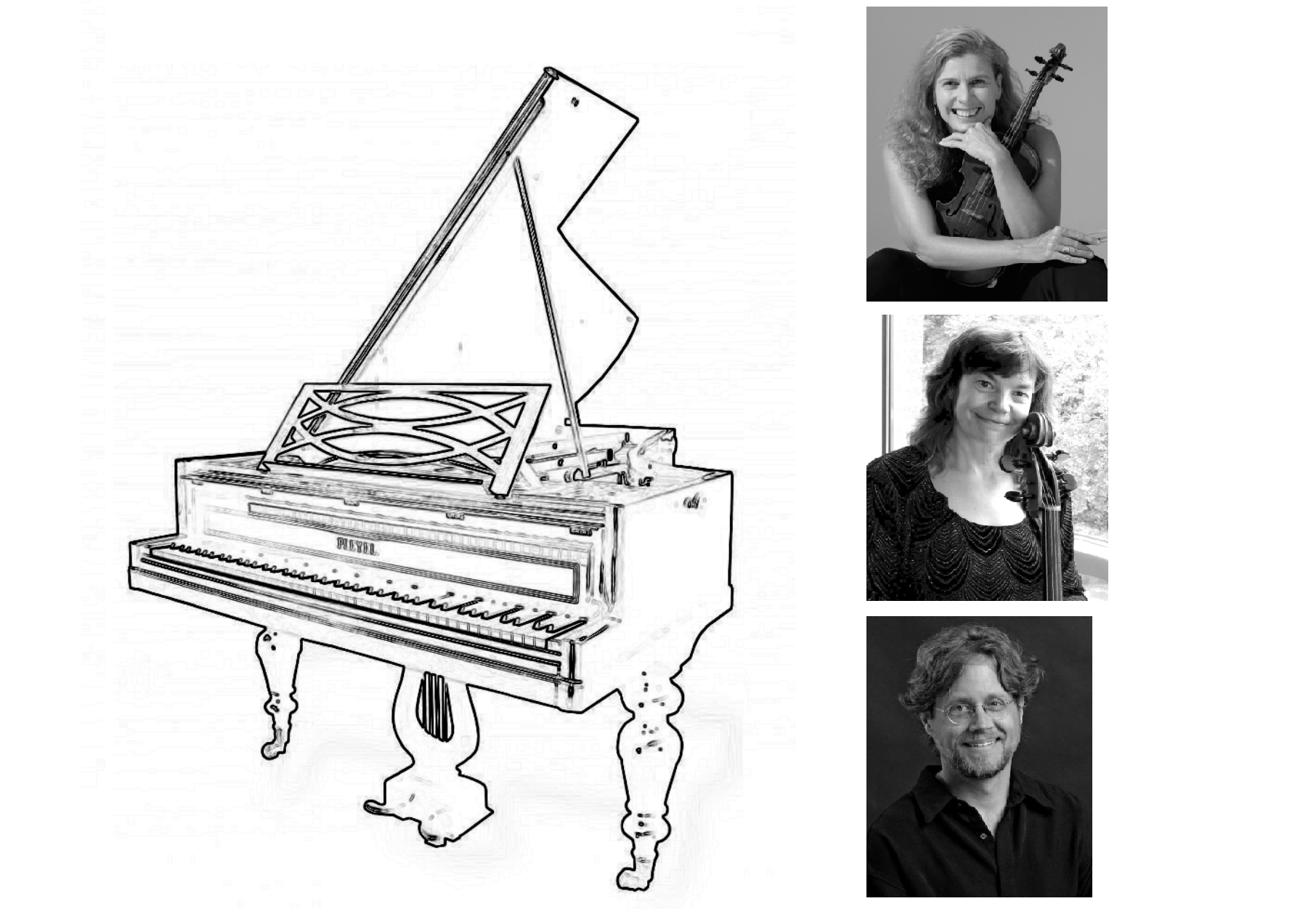Keyboard Identities in Flux
The breadth, depth, and diversity of the CCHK’s collections give unique insights into the intersecting and perpetually changing identities of keyboard instruments over time. In a series of snapshots, this semester’s programs present the many kaleidoscopic guises keyboard instruments and their exponents can assume beyond their immediate geographical and cultural origins – from fantasies about Greek antiquity to African American compositional practices, from the music culture of modern Europe to the rich and varied soundscape of Ithaca’s own organs.

Piano Recitals
Evening piano recitals this semester begin with an impromptu visit from guest artist Tomasz Ritter – the first to have won the prestigious Chopin Piano Competition on historical instruments – followed by a varied slate of programs featuring Cornell pianists.

Evening Organ Recitals
Evening organ recitals feature Cornell faculty and graduate students along with guest artist Kola Owalabi, in programs spanning four centuries heard on five different instruments including the newly renovated Aeolian-Skinner organ at Sage Chapel.

Keyboard Salons
Co-sponsored by the Society for the Humanities, the Keyboard Salon series brings together music, instruments, research and conversation in a compact, hour-length format at the historic A. D. White House.

Midday Music for Organ
Midday Music for Organ offers informal 40-minute programs on alternate Wednesdays at 12:30pm, giving busy Cornellians and guests musical respite at the center of the week; events will take place throughout campus and in local Ithaca churches.
Week
Feb 7-13
Evening Organ Recital
Trios And Duos of the 17th and 18th Century
_______________________
_______________________
Nathan Mondry
with guests Nuova Pratica
with guests Nuova Pratica
Music by Corelli, St. Colombe, LeClair
and members of the group.
Description

Feb 11, 8pm | Sage Chapel
Feb 12, 7pm | Barnes Hall
Feb 12, 7pm | Barnes Hall
Feb 14-20
Piano Recital
Piano Recital
__________
Tomasz Ritter
__________
Instruments: Graf (1823); Pleyel (1843)
Description
 Tomasz Ritter, winner of the first Chopin competition on period instruments, will present a short recital with music by Chopin and Beethoven.
Tomasz Ritter, winner of the first Chopin competition on period instruments, will present a short recital with music by Chopin and Beethoven.
Feb 15, 7pm | Barnes Hall
Keyboard Salon
Chopin’s Temperament
_______________________
Mike Cheng-Yu Lee with guest Jonathan Bellman
_______________________
Instruments: Broadwood and Sons (1849)
Description

CCHK artist-in-residence Mike Lee collaborates with renowned Chopin scholar, Jonathan Bellman, to explore Chopin’s predilections for unequal tuning systems and the expressive implications that historical temperaments hold for his music – and conversely what’s lost when the music is heard with modern equal temperament. For this Salon, our 1849 Broadwood (Chopin famously called Broadwood “a real London Pleyel”) will be tuned to Bellman’s reconstructed temperament recipe – the BELLMAN1 – and the A. D. White House’s resident New York Steinway to equal temperament. A selection of excerpts will be explored with the audience on both instruments and tunings.
Feb 18, 5pm | AD White House
Reservation is required
Reservation is required
Feb 21-27
Midday Music for Organ
Singing her own Song
_______________________
_______________________
Anna Steppler
Music by Judith Bingham, Elfrida Andree and Florence Price.
Description

Feb 23, 12:30pm | First Presbyterian Church
Feb 28 – Mar 6
Evening Organ Recital
Environs Franck
_______________________
_______________________
David Yearsley and Annette Richards
Music by Bach, Widor, and Franck.
Description

March 4, 7pm | St. Luke Lutheran Church
Mar 7-13
Midday Music for Organ
A Baroque Pot-Pourri
_______________________
_______________________
Annette Richards
Music by Pablo Bruna, John Stanley, and C.P.E. Bach.
Description

March 9, 12:30pm | Anabel Taylor Chapel
Mar 14-20
Midday Music for Organ
The Chamber Organist
_______________________
_______________________
Nathan Mondry
Music by Buxtehude, Pachelbel, and Kuhnau.
Description

March 16, 12:30pm | Barnes Hall
Mar 21-27
Keyboard Salon
The Viennese Piano and the Stein-Streicher Dynasty
_______________________
Mike Cheng-Yu Lee
_______________________
Instruments: McCobb-Stein (1784);
J. B. Streicher (1857)
Description

March 25, 5pm | AD White House
Reservation is required
Reservation is required
Evening Organ Recital
Bach and the later 18th Century
_______________________
_______________________
Annette Richards
Music by J.S. Bach, C.P.E. Bach, J.L. Krebs.
Description

March 24, 7pm | Anabel Taylor Chapel
Mar 28 – Apr 3
Keyboard Salon
The Piano Trios of Robert Schumann
_______________________
Taliesin Trio – Xak Bjerken (piano),
Ellen Jewett (violin),
Elizabeth Simkin (cello)
Instrument: Pleyel (1865)
Description

April 1, 5pm | AD White House
Reservation is required
Reservation is required
Apr 4-10
Apr 11-17
Piano Recital
Historical Fantasies: Works by Debussy, Ravel and Price
_______________________
Andrew Zhou
_______________________
Instrument: Blüthner (1878)
Description

April 15, 6pm and 8pm | Barnes Hall
Evening Organ Recital
Reflections for Lent and Passiontide (CANCELED)
_______________________
_______________________
Anna Steppler
Music by J.S. Bach and predecessors.
Description

April 12, 7pm | Anabel Taylor Chapel
Apr 18-24
Midday Music for Organ
In Company, at the King of Instruments
_______________________
David Yearsley and Annette Richards
Music by the Bach family, Antonio Soler, and others.
Description
Annette Richards and David Yearsley join forces to combine hands and feet in a program of solos and duos from the long 18th century. While we wait for the Aeolian-Skinner organ in Sage Chapel, now to be unveiled in guest Kola Owolabi’s recital on April 29th, this concert explores the charm and grace of the Anabel Taylor organ for a final time this semester, with music by members of the Bach family, Antonio Soler, and others.
April 20, 12:30pm | Anabel Taylor Chapel
Apr 25 – May 1
Piano Recital
Chopin: The Four Scherzi
_______________________
Mike Cheng-Yu Lee
Instrument: Pleyel (1843)
_______________________
Mike Cheng-Yu Lee
Instrument: Pleyel (1843)
Description

April 26, 8pm | Barnes Hall
Evening Organ Recital
Guest Artist Recital (CANCELED)
_______________________
_______________________
Kola Owolabi
Music by Gerald Near, Adolphus Hailstork,
William Farley Smith and Thomas Kerr.
Description

April 29, 7pm | Sage Chapel
May 2-8
Piano Recital
The French Connection
______________
Nathan Mondry
______________
Instruments: McNulty-Silbermann (1749);
Wolf-Jacques Germain harpsichord (1785)
Description
 Our Silbermann (1749) piano returns in a double-header this spring. Nathan Mondry (DMA student) will present a snapshot from the mid-18th century, when the keyboard soundscape was one of uncertainty and experimentation and the piano was at the cusp of “triumphing” over the harpsichord. The program juxtaposes this earliest of pianos with the harpsichord, heard through the works of three composers working in different parts of Europe and operating under this fluctuating soundscape: Balbastre (Paris), J. C. Bach (London) and Haydn (at Esterháza in modern-day Fertőd).
Our Silbermann (1749) piano returns in a double-header this spring. Nathan Mondry (DMA student) will present a snapshot from the mid-18th century, when the keyboard soundscape was one of uncertainty and experimentation and the piano was at the cusp of “triumphing” over the harpsichord. The program juxtaposes this earliest of pianos with the harpsichord, heard through the works of three composers working in different parts of Europe and operating under this fluctuating soundscape: Balbastre (Paris), J. C. Bach (London) and Haydn (at Esterháza in modern-day Fertőd).
May 4, 8pm | AD White House
Piano Recital
J. S. Bach “Art of the Fugue”
______________
______________
Thomas Reeves
Instruments: McNulty-Silbermann (1749)
Description
 Thomas Reeves (PhD in Applied Mathematics, ’22) gives a complete performance of J. S. Bach’s monumental Art of the Fugue on the Silbermann, an instrument that embodies European hybridity: though having the just reputation as the first German piano, its mechanism is a near-exact copy of Cristofori’s highly sophisticated Florentine design.
Thomas Reeves (PhD in Applied Mathematics, ’22) gives a complete performance of J. S. Bach’s monumental Art of the Fugue on the Silbermann, an instrument that embodies European hybridity: though having the just reputation as the first German piano, its mechanism is a near-exact copy of Cristofori’s highly sophisticated Florentine design.
May 5, 8pm | AD White House
Midday Music for Organ
Circa 1940
______________
______________
Annette Richards
Music by Jehan Alain, Herbert Howells, and Charles Ives.
Performed on the Aeolian-Skinner Organ
Description
 Exploring the conception of Cornell’s Aeolian-Skinner organ as a microcosm of diverse musical worlds that look towards Europe even while expressing a uniquely American organ aesthetic, this program brings together music composed in a roughly 10-year period around the organ’s completion in 1940. From England, we will hear Herbert Howells’ poignant Master Tallis’s Testament (1940), from France the music of Jehan Alain (killed in 1940 in the trenches of the second world war at the age of 29), and finally, from the U.S. but with a wry glance across the Atlantic, the ever-popular Variations on America by Charles Ives, arranged by the composer for the organ at the encouragement of the legendary E. Power Biggs, in 1949.
Exploring the conception of Cornell’s Aeolian-Skinner organ as a microcosm of diverse musical worlds that look towards Europe even while expressing a uniquely American organ aesthetic, this program brings together music composed in a roughly 10-year period around the organ’s completion in 1940. From England, we will hear Herbert Howells’ poignant Master Tallis’s Testament (1940), from France the music of Jehan Alain (killed in 1940 in the trenches of the second world war at the age of 29), and finally, from the U.S. but with a wry glance across the Atlantic, the ever-popular Variations on America by Charles Ives, arranged by the composer for the organ at the encouragement of the legendary E. Power Biggs, in 1949.
May 4, 12:30pm | Sage Chapel
May 8
Piano Recital
Afternoon of Schumann at Waldorf School Ithaca
______________
______________
Taliesin Trio – Xak Bjerken (piano), Ellen Jewett (violin), Elizabeth Simkin (cello)
Instrument: Pleyel (1865)
Description
 The Taliesin trio was formed in the late 1990s and spent summers together in residence at the Tanglewood Music Center and the Spoleto festival in Italy.
The Taliesin trio was formed in the late 1990s and spent summers together in residence at the Tanglewood Music Center and the Spoleto festival in Italy.
They have been reunited for the last few months and have very much enjoyed exploring this stunning repertoire on the beautiful Pleyel piano.
Mother’s Day, May 8th, 2022:
2 pm Trio in d minor
2:45 pm Trio in F major
3:30 pm Trio in g minor
Ithaca Waldorf School 20 Nelson Road, Ithaca, NY
Please contact Emily at ebutler@ithacawaldorf.org by Friday May 6th at 3 pm to secure a seat at your preferred time. We have a seating capacity of 60 in the beautiful Great Room.
Masks are still mandatory inside the school. Listeners needs to sign in as they enter.